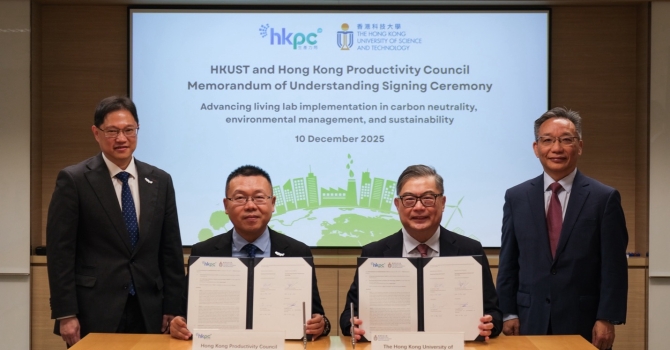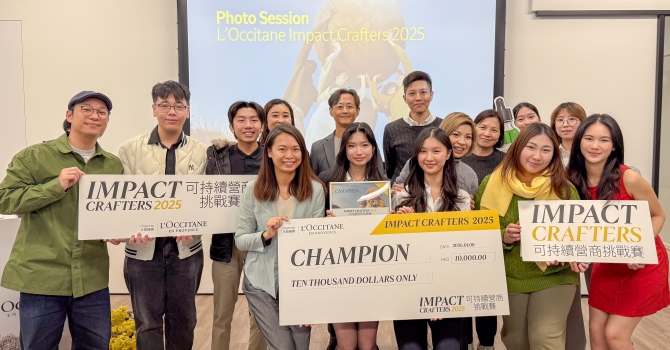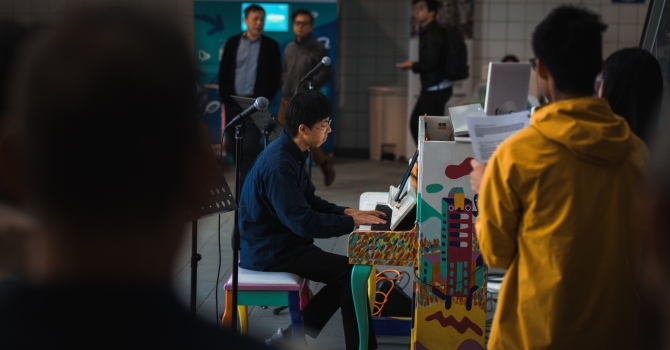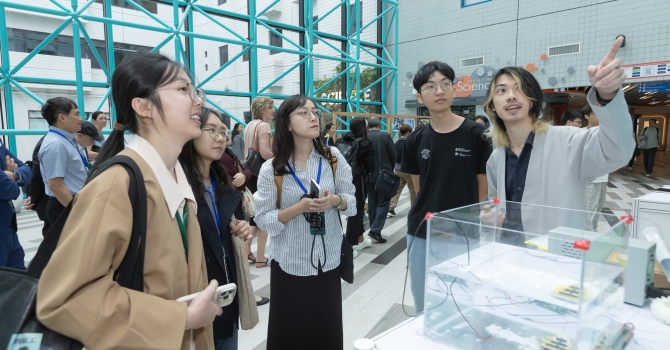From Design Thinking to Innovative Solutions
Design Thinking, Team Building and Sustainable Smart Solutions. These are the main components of the Sustainable Smart Campus Net-Zero Journey: Innovation Challenge. If any of these terms resonate with you, joining next year might be attractive.
Throughout the first week of June, around 30 HKUST UG and PG students from Clearwater Bay and Guangzhou campuses with different background of studies and experiences participated in the SSC Design thinking workshop funded by the Tung Foundation. With a project implementation budget of HKD 75,000 and a prize pool of HKD19,000, the program kicked off at the Hong Kong Science Park with the design thinking workshop and retreat camp. In the following week, numerous workshops were held in Clearwater Bay campus to equip and intellectually challenge the participants with creativity and innovation approach, followed by a final group presentation of the solutions that are feasible to implement on campuses with impact across the system.
So, what did the workshops actually look like?
Everyone was excited and open-minded on the first day, waking up early and taking coach from the campus to the Hong Kong Science Park. The first workshop was an icebreaker and team building activity to get to know everyone better and warm up the atmosphere. After lunch, the workshop began by self-introduction presentations and Dr Zhang, an IPO lecturer, introduced the group to concepts such as the design thinking road to success and common problems with start-ups. Students started to identify the campus challenges and formed groups at the end of the day before the group dinner and stayover at the new InnoCell. Not only did most people find a team full of people they had met just a few hours ago, but they also found friends they would never meet without the workshop. On the second day of the event, with groups presenting challenges to net-zero carbon goal, Dr Zhang introduced innovative and effective ways to achieve solutions.
The second phase of the program included a week on campus with life-cycle analysis training, poster design, video creation, prototyping and storytelling workshops to support the groups to produce the final presentation of video and poster by the end of the week. Stakeholder interviews were arranged with staff from different operations and academic departments for the groups to conduct empathy studies.
Hosted in the Incubator Lab in the LSK business building, teams worked smart and effectively together until the program end. With the magnum opus of each group being refined and finishing touches being made, Presidents from both campuses shared their words of encouragement while many other VIPs showing up and giving feedback on their ideas. The awards went to the group of EcoPrana who designed to develop a net zero pavilion for HKUST members to relax and reduce stress. The first and second runners-up proposed a wasteless canteen and a mobile app that promotes sustainable behaviours respectively. All three winning teams will be provided with budget for implementing their plans. Regardless of winning, everyone accomplished with more knowledge of design thinking, having memories of teamwork, and making new friends than they first stepped in the event room just a week ago.



